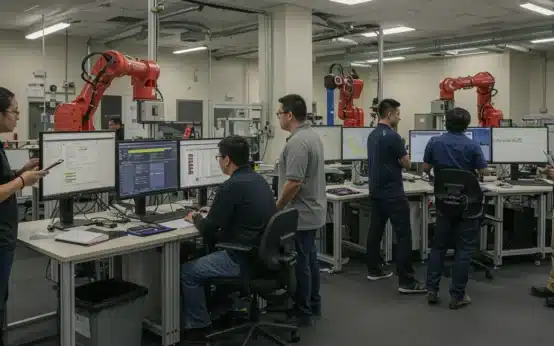Argentina’s economic crisis draws IMF attention due to soaring inflation, significant national debt, and the need for urgent reforms to stabilize the economy and promote sustainable growth.
Argentina’s economic crisis draws IMF attention, highlighting the nation’s urgent need for financial support. But what does this mean for everyday Argentines? Let’s explore the impact and implications together.
Overview of Argentina’s economic landscape
The current economic climate in Argentina paints a complex picture. The nation has faced significant challenges, including high inflation and increasing debt levels. As these issues grow, Argentina’s economic landscape deserves careful examination.
Key Economic Indicators
Understanding Argentina’s economy starts with its key indicators. Inflation rates have skyrocketed, reaching levels that severely impact purchasing power. Additionally, unemployment rates have increased, leading to greater social challenges.
- Inflation rate exceeding 50% annually
- Unemployment around 9%
- Debt-to-GDP ratio surpassing 80%
These figures illustrate just how vulnerable the economy has become. Amid these struggles, the government has taken steps to implement reforms. However, each measure often comes with its set of controversies.
Government Policies and Their Impact
Various policies have been introduced to stabilize the economy. However, these measures can sometimes yield mixed results. For instance, currency controls have been implemented to combat inflation, yet they can also limit foreign investment.
Additionally, the tension between economic growth and austerity continues to be a major point of contention. While some argue for immediate reforms, others insist on prioritizing social welfare to soften the blow for vulnerable populations. As debates unfold, it is crucial to consider how each decision impacts daily life in Argentina.
In summary, Argentina’s economic landscape is a blend of stark challenges and ongoing efforts to reverse them. The ongoing dialogue among policymakers, economists, and everyday citizens will undoubtedly shape the future of this nation’s economy.
Key factors driving the current crisis
Several key factors are currently driving the economic crisis in Argentina. As inflation soars, the repercussions affect every aspect of life, from basic goods to housing. The situation is exacerbated by a lack of foreign investment and skyrocketing debt.
Inflation and Cost of Living
Argentina is grappling with high inflation rates, which have reached alarming levels. Essentials like food and fuel have become increasingly expensive. When inflation rises, the value of money decreases, making it hard for families to afford daily needs.
- Inflation rate above 50%
- Rising prices for basic goods
- Impact on middle-class families
This inflation crisis pushes many into poverty, as wages fail to keep pace with rising costs. Each day, people in Argentina face tough choices about what to buy.
Debt Crisis
Another factor contributing to the crisis is Argentina’s significant national debt. The country struggles to manage its obligations, leading to negotiations with international creditors. This situation is not just a fiscal issue; it also affects public services and infrastructure.
With high debt levels, the government often faces tough decisions on budget cuts or tax increases, both of which can hurt the economy further. The uncertainty around these decisions continues to fuel public fear and unrest.
As these issues compound, the outlook for Argentina remains uncertain. Each factor interacts, creating a cycle that is hard to break. Urgent action is necessary to address the underlying issues affecting the economy, but solutions are far from simple.
The role of the IMF in Argentina’s economy

The IMF, or International Monetary Fund, plays a critical role in Argentina’s economy, particularly during times of crisis. The organization provides financial assistance and policy guidance to help stabilize nations in need.
Financial Assistance
When Argentina faces economic turmoil, the IMF often steps in with financial support. This assistance can take various forms, including loans, which help cover budget deficits and pay off debts.
- Short-term financial support to stabilize the economy
- Loan agreements with specific conditions
- Technical assistance in economic reforms
While this financial aid can be essential, it usually comes with strict conditions. These options aim to ensure that Argentina implements economic reforms to restore growth and stability.
Policy Guidance
In addition to financial aid, the IMF offers valuable policy advice. This guidance helps the Argentine government navigate economic challenges effectively. Often, the IMF recommends several measures, such as:
- Reducing government spending
- Increasing taxes
- Implementing structural reforms in key sectors
These recommendations can be controversial, as they sometimes lead to social unrest. Many citizens feel the impact of austerity measures directly in their daily lives.
Overall, the relationship between Argentina and the IMF is complex. While the IMF aims to help stabilize the economy, the conditions attached to assistance can lead to public discontent. Understanding this dynamic is crucial for grasping the current economic situation in Argentina.
Potential solutions to stabilize the economy
To address the ongoing challenges in Argentina’s economy, several potential solutions have emerged. These solutions aim to stabilize the current situation and promote sustainable growth for the future.
Implementing Economic Reforms
One of the most critical steps is to implement broad economic reforms. Changes in fiscal policies can help manage inflation and control public debt. Some suggested reforms include:
- Streamlining government spending
- Increasing revenue through efficient tax collection
- Improving public sector efficiency
By making these adjustments, Argentina may better position itself for economic recovery.
Promoting Foreign Investment
Another approach involves encouraging foreign investment. Attracting international investors can provide much-needed capital. To make Argentina more appealing to investors, the government could:
- Stabilize the currency
- Ensure clear and fair regulations
- Offer tax incentives for foreign companies
These measures can create job opportunities and enhance overall economic activity.
Strengthening local industries is also essential. By supporting small and medium-sized businesses, Argentina can build a more resilient economy. Investment in innovation and technology can further enhance productivity.
Lastly, engaging with the international community through trade agreements is vital. Strengthening trade ties can open up new markets for Argentine goods and services. This fosters economic growth and diversifies the economy.
Implications for future economic policies
The implications for future economic policies in Argentina are significant, as the nation seeks to recover from its current crisis. Policymakers must carefully consider various strategies to promote sustainable growth and stability.
Long-term Economic Stability
One key implication is the need for long-term economic stability. This can only be achieved through consistent policies that prioritize fiscal responsibility. Argentina must develop a clear framework for managing its national debt and reducing inflation.
- Ensuring sustainable fiscal policies
- Creating transparent budgeting processes
- Prioritizing essential public services
Such steps will help rebuild trust among citizens and international investors alike, encouraging a more favorable economic climate.
Social Considerations
Another important aspect is the social impact of economic policies. As reforms take shape, it’s vital for the government to consider the effects on the population. Implementing safety nets can help protect vulnerable groups during transitioning times.
Investing in education and job training programs will equip individuals with the skills needed for a changing economy. These efforts not only address immediate concerns but also foster a more resilient future workforce.
Furthermore, engaging the public in dialogue about economic decisions can enhance transparency and promote social cohesion. This involvement is crucial for reducing resistance to necessary reforms.
In summary, effective future economic policies for Argentina must focus on ensuring long-term stability, addressing social needs, and fostering community engagement. It is through these measures that the country can hope to emerge stronger from its current challenges.
FAQ – Frequently Asked Questions about Argentina’s Economic Crisis
What are the main factors driving Argentina’s economic crisis?
High inflation rates, significant national debt, and lack of foreign investment are major factors driving the crisis.
How does the IMF assist Argentina during this crisis?
The IMF provides financial assistance and policy guidance aimed at stabilizing the economy and promoting necessary reforms.
What potential solutions could stabilize Argentina’s economy?
Implementing economic reforms, promoting foreign investment, and strengthening local industries are some key solutions.
Why is community engagement important in economic policy?
Community engagement fosters transparency and helps ensure that policies meet the needs of the population, reducing resistance to reforms.



 High-Growth Careers Without a Bachelor’s Degree in the US
High-Growth Careers Without a Bachelor’s Degree in the US  U.S. Community Colleges Adapt: 3 New Workforce Programs
U.S. Community Colleges Adapt: 3 New Workforce Programs  Higher Education Act Reauthorization: Impact on U.S. Students
Higher Education Act Reauthorization: Impact on U.S. Students